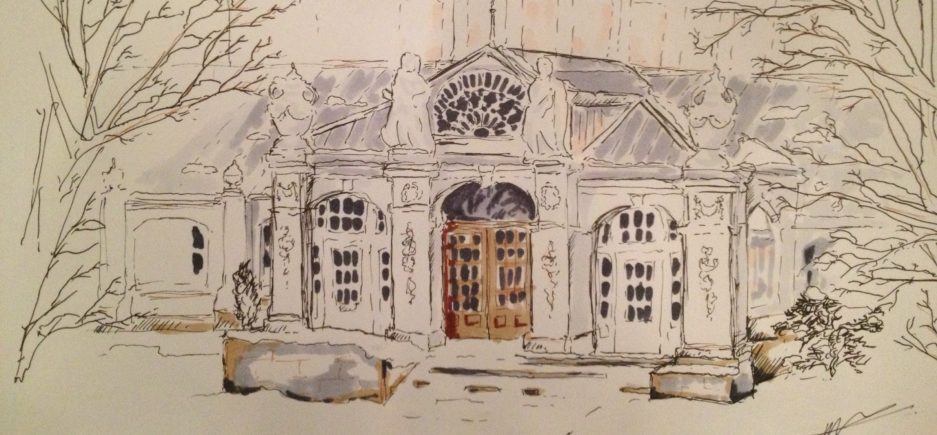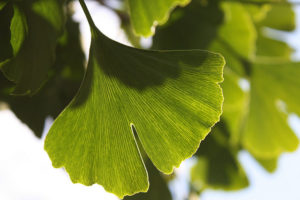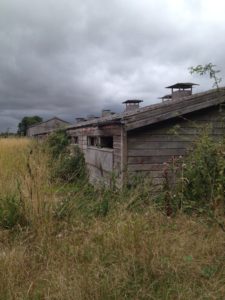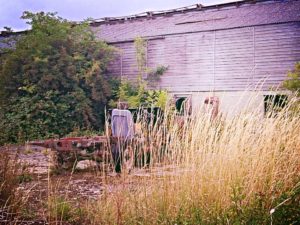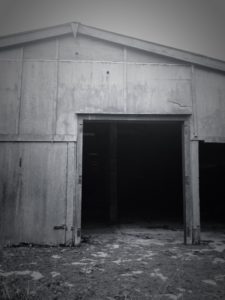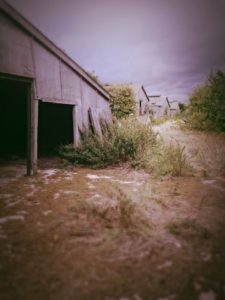My father was a goldsmith, my mother made lace. In our village, that is what men and women did. My brother would learn to work metal, and I threads, into filigreed objects of desire for passing tourists. Unless, of course, our plan to escape was successful.
The inextinguishable
You were gone, and they burnt your body
And all that you were became ash and air.
Two of oxygen and carbon, one,
Inhaled by the green sward of college lawns
Gases sifting and swirling in Hall and cloister
Carrying the redolence of aged bindings
Water, to mingle with the Isis and the Cherwell,
as punts slip and glide overhead.
Dust, to dust but then to root,
Building tall the tree and the garden.
No atom of you will ever cease to be
Nor will our memories and our love
In memory of AG, once very dear to me, who was murdered in his home this year.
Prompt: outside the window…
…there is a delicate green, belonging to the leaves of a bonsai tree. Each leaf is lobed, bifurcated, it is a ginkgo biloba (ginnan). The trunk twists in typical ‘bonsai’ style (nebikan or moyogi), although this shape is actually wrong for this tree. A bonsai should echo a natural form, and the ginkgo has an upright trunk (hokidachi). The wires have been left on the trunk too long and have scarred the bark. Despite, or because of, its imperfections, this little tree is beautiful and gives pleasure to the observer. Efforts have been made to balance the branches and shrink the leaves, without being overly sadistic. A few rocks and some moss form an attractive base around exposed roots (neagari).
Three word prompt: thrill moth cap
The brittle corpse of a moth tumbled from the jacket as he brought it out of the wardrobe. He examined the material carefully. Cuffs usually were the first to be devoured, but only a few pinpricks were visible. Once upon a time the elegant black dinner suit was pressed and worn weekly or more. The thrill of those days came back to him, in a moment of delight and astonishment at the flood of memory. The amount he’d drunk! He remembered Cathy as she was back then, how she’d set her cap at him. Too much of a lady to be overtly flirtatious, it had taken her a long time to convey her interest, poor love. Then that night, that ball (and her ravishing midnight blue gown) had awakened in him the realisation that she could, indeed, be the one. He missed her, dully now after the years gone by, but no less deeply. He eased the jacket off its hanger and onto his stiff shoulders. A little loose it hung around the arms, but the fit was still good. He straightened up in the mirror, adjusted his bow tie, turned and left for his last ball.
Setting for a country horror story
Imaginary city – the Institute for Molecular Botany
The Institute for Molecular Botany occupies perhaps the most beautiful building in the city. The facade is white limestone and baroque in style. Within the intricately carved swags and flourishes, exactly 142 species of plant are represented by virtue of foliage or flowers. The elegant double doors lead to the atrium. Here the rococo extravagance of the exterior is replaced by a sweeping glass walled lightwell rising five stories, through which can be seen living walls of greenery. These are characterised by abundance and variety, from cascading trailers to robust, fleshy succulents, in every shade of green, silver and deep red. The air is redolent with sap, earth and nectar, like that of a florist’s shop. The lift shaft, also glass, travel up along one side of the atrium, and on each floor glass corridors lead off to the laboratories. Everywhere there are plants growing; the corridors are lined with planters and even the lift contains something of a window-box along one side. The laboratories are open, white spaces, specimens crowding the benches and bays and straining eagerly for the overhead lights. It was here that cerastabine, now a leading anticancer agent, was first isolated from an unassuming weed collected in the Nicaraguan highlands. Here also hybrids are being developed to produce all manner of useful substances, from plastics to fuels. On the fourth floor, the topmost, are a lecture hall, meeting rooms and a space for receptions. The open area is lined with exquisite photographs from the microscopy division, luminous close-ups of the innermost life of the surrounding plants. As a centrepiece, a collection of rarities, chosen for beauty of leaf or bloom, is arranged over and around a large piece of driftwood. A tour of the building comes highly recommended, although access to some of the laboratory areas is restricted.
Random first line: ‘He hadn’t meant to scare the child’
He hadn’t meant to scare the child. To make an amusing point, shock a little perhaps, but ultimately to illustrate that one mustn’t pick one’s nose, not at the table, not anywhere. So he’d folded his finger over and pretended, amid melodramatic shouts and flailing, to have it stuck, jammed, in his own nose. The little girl’s reaction had been to pale, crumple and run to her room. He felt ashamed to have made her so afraid, but surprised. He was also annoyed, irritated with the child’s mother, his stepdaughter, who was now haranguing him for the performance – another mark against him, another opportunity for narrow-eyed contempt. Why didn’t she police her own daughter’s repulsive habit? Possibly, as he recalled, because she had many of her own, not least a penchant for tantrums and vitriol. He wondered what the little one had seen of that, and recoiled inwardly, with icy realistion. Of course. The fear in the child’s eyes was something he recognised from deep memory, something his own face once carried at home and at school, on those dreadful occasions of humiliation and powerlessness. How unkind of him – a resilient dandelion this girl was not. Medical sense of humour gone too far, she wan’t one of his hardy juniors. He liked children, though he’d had none of his own. His wife said once how different the girl became when she stayed the weekend, how she blossomed, warmed, but he’d yet to see that. He looked up at the thin-lipped mother still scowling across the table, in the cramped room, and set his resolve. Maybe the next trip could be longer, and the little girl could come back with them to the villa. They could watch for lizards together in the sun, and pick golden plums from the tree by the back veranda. Maybe they could be friends.
Prompt: ‘a string of laughter’
There was laughter between us; a fine thread at first, hairlike, drawn out delicately into the space across the first coffees we shared. Then the threads gathered, clung, twisting with speed into yarn, strings that bound our bodies loosely beneath our ribs. As we shared each ludicrous moment, as we found the pulls and tangles in each other, the stitches tightened. Fine particles of steel, copper, gold infused the skeins, then, and we began to send and receive subtle pulses, signals, as along routed cables. The bonds of shared hilarity run firmly between us now; may they always.
A space for writing, imagery and creativity
This is my new creative notepad! Enjoy reading, as I enjoy writing.
